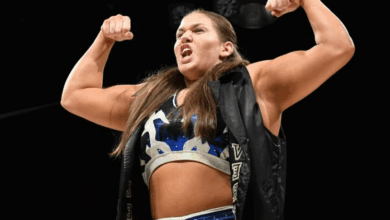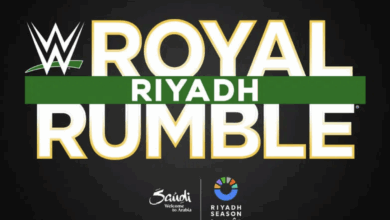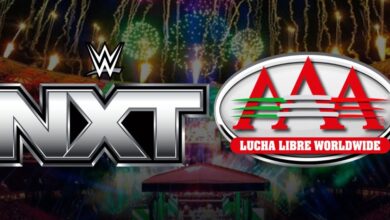MLW Files Amended Lawsuit Against WWE, Cites REELZ Deal, Claims WWE Interfered With AEW

MLW has amended its lawsuit against WWE.
MLW has amended its lawsuit against WWE.
MLW filed the lawsuit in January 2022; the original complaint alleged that WWE attempted to undermine the competition by inhibiting MLW in its pursuit of media distribution deals. MLW also accused WWE of trying to hire contracted talent away from the company.
WWE tried to have the lawsuit dismissed multiple times in 2022. Judge Edward Davila previously dismissed the lawsuit; in the ruling, Davila noted that MLW did not provide sufficient facts to plausibly allege a relevant antitrust product market and granted MLW 21 days to submit an amended complaint.
According to court documents, in the new complaint, which was filed on March 6, MLW more specifically alleges that WWE has violated Sherman Antitrust act as the U.S. market for pro wrestling media content, whereas the initial suit focused on the pro wrestling market itself. MLW presents an analysis in which it argues that WWE currently controls 92% of the revenue from this market, while AEW has 6%, leaving just 2% of the revenue for everyone else.
MLW alleges that, in 2018, Paul Levesque (Triple H) tried to have Madison Square Garden cancel the ROH event that was scheduled for WrestleMania weekend in 2018. In the claim, MLW alleged that MSG rescheduled the show (after initially canceling it) after Sinclair Broadcasting, ROH’s parent company, threatened legal action.
In a naked attempt to restrain competition through the abuse of its market power, WWE, through Paul Levesque, its then-Executive Vice President, called MSG to insist that MSG cancel the show with ROH and NJPW. Unable to resist the pressure from the industry behemoth, MSG succumbed, and withdrew from the ROH agreement and cancelled the ROH show. While Sinclair threatened to sue MSG over their agreement, and the show was rescheduled, ROH and NJPW were forced to incur significant legal expense to vindicate their legal rights and to defend against WWE’s anti-competitive behavior. A smaller nascent competitor, without the support of Sinclair, may not have been able to resist such pressure and incur the necessary legal expenses to vindicate its rights.
MLW also claimed that WWE prevented AEW from running a show at Heritage Bank Center in Cincinnati in 2019 and early 2020 due to the venue’s relationship with WWE. Likewise, MlW cited WWE booking two premium live events, the day before and after AEW All Out, as an attempt to undermine the competition.
WWE has also leveraged its dominance and brand recognition to draw audiences away from competing promotions and thereby prevent rivals from gaining a foothold in the Relevant Market. For example, WWE recently attempted to thwart the success of AEW’s All Out pay-perview programming. In previous years, AEW has run its popular All Out program with much success during Labor Day weekend. In an effort to prevent AEW from posing a real threat to WWE’s market share, in or around Labor Day 2022, WWE decided to run two premium live events to coincide with AEW’s programming. By specifically targeting key dates of AEW’s programming, WWE sought to draw away the audience from AEW’s popular program, even though its own viewership numbers would also likely suffer from the competing time slots.
The claim also offers more evidence about the previous allegations that WWE hired away MLW talent; the company used Swerve Strickland and Davey Boy Smith Jr. as examples. MLW alleged that Canyon Ceman, a WWE talent executive at the time, encouraged Strickland to opt out of MLW contract. MLW also claimed that WWE hired Smith Jr., and the fact that he was only used in one dark match was used as evidence of their argument that WWE was trying to “impair MLW’s ability to build its brand.”
WWE began hiring away MLW’s wrestlers who were under exclusive contracts as early as 2018. For example, WWE successfully solicited MLW’s World Champion Stephon Strickland, while he was under contract with MLW. Canyon Ceman, WWE’s Senior Director of Talent Development at the time, had reached out to Strickland to encourage him to opt-out of his agreement with MLW. WWE’s interference with that relationship was devastating to MLW’s marketing and creative strategy, resulting in MLW incurring substantial costs to change programming, merchandise strategies, creative direction and more. AEW also recently demanded that WWE stop contacting numerous AEW wrestlers in an attempt to hire their wrestlers away from AEW.
WWE’s motivation for the predatory hiring of talent is to lock up the pool of commercially successful and talented wrestlers in order to suppress competition rather than to innovate or produce content. For example, in July 2021, WWE hired away Davey Boy Smith Jr., one of MLW’s most popular wrestlers, from MLW. Rather than using Smith in its programs and incorporating him into its storylines, WWE kept Smith out of its programming, with Smith only appearing in one dark match during his tenure at WWE. By WWE failing to use Smith in its programming, WWE made clear its intent to impair MLW’s ability to build its brand and viewership by removing one of its successful wrestlers
In the claim, MLW also alleges that AEW demanded WWE to stop contacting AEW wrestlers who WWE was trying to hire away. AEW CEO Tony Khan has publicly discussed this situation in interviews.
Additionally, MLW claims that, since its launch in 2019, AEW “has yet to be profitable”, which the company used to illustrate the challenge of competing with WWE.
WWE’s monopoly power has earned WWE growing revenues and profits. In four of the past five years, WWE has reported an increase in net income, growing by 206% in 2018, decreasing by 23% in 2019, and then growing by 71% in 2020, 35% in 2021, and 10% in 2022. In contrast, WWE’s largest competitor, AEW, has been unable to earn a profit since its founding in 2019.
In another point, MLW claims that WWE’s conduct is detrimental to fans as it reduces their choices and quaity of professional wrestling programming”, while also increasing the cost of consuming that content.
Its conduct has harmed purchasers of media rights for professional wrestling programming by depriving them of programs and enabled WWE to impose and maintain supracompetitive prices, and in turn has harmed wrestling fans by reducing their choices and quality of professional wrestling programming and increasing their costs of consuming that content.
MLW also repeated its original complaint that WWE interfered with their media deals with VICE, Tubi, and FITE. Additionally, following the recent news that Peacock would add a REELZ stream without airing MLW Underground, which recently premiered on the channel, MLW cited WWE’s exclusive deal with Peacock as another example of WWE’s “predatory conduct”. The claim noted that it hindered MLW’s ability to compete and deprived them of their ability to license MLW programming.
Most recently, WWE’s predatory conduct further impeded MLW in its ability to compete in the licensing of its programming for distribution on streaming services and continues to threaten to deprive MLW of its ability to license its programming for distribution on cable. As a result of WWE’s misconduct, MLW is at risk of its business being irreparably destroyed. In February 2023, MLW’s new media partner — Reelz — announced a distribution deal with streaming service Peacock. But as a direct result of WWE’s exclusivity arrangement with NBCUniversal, which prohibits any other professional wrestling programming on Peacock, MLW’s programming is excluded from this streaming deal, which further suppresses competition in the Relevant Market. MLW also is reportedly at risk of losing its cable deal with Reelz as a result of WWE’s exclusivity with Peacock.
Fightful will continue to update fans on the latest news regarding the court case between WWE and MLW.




